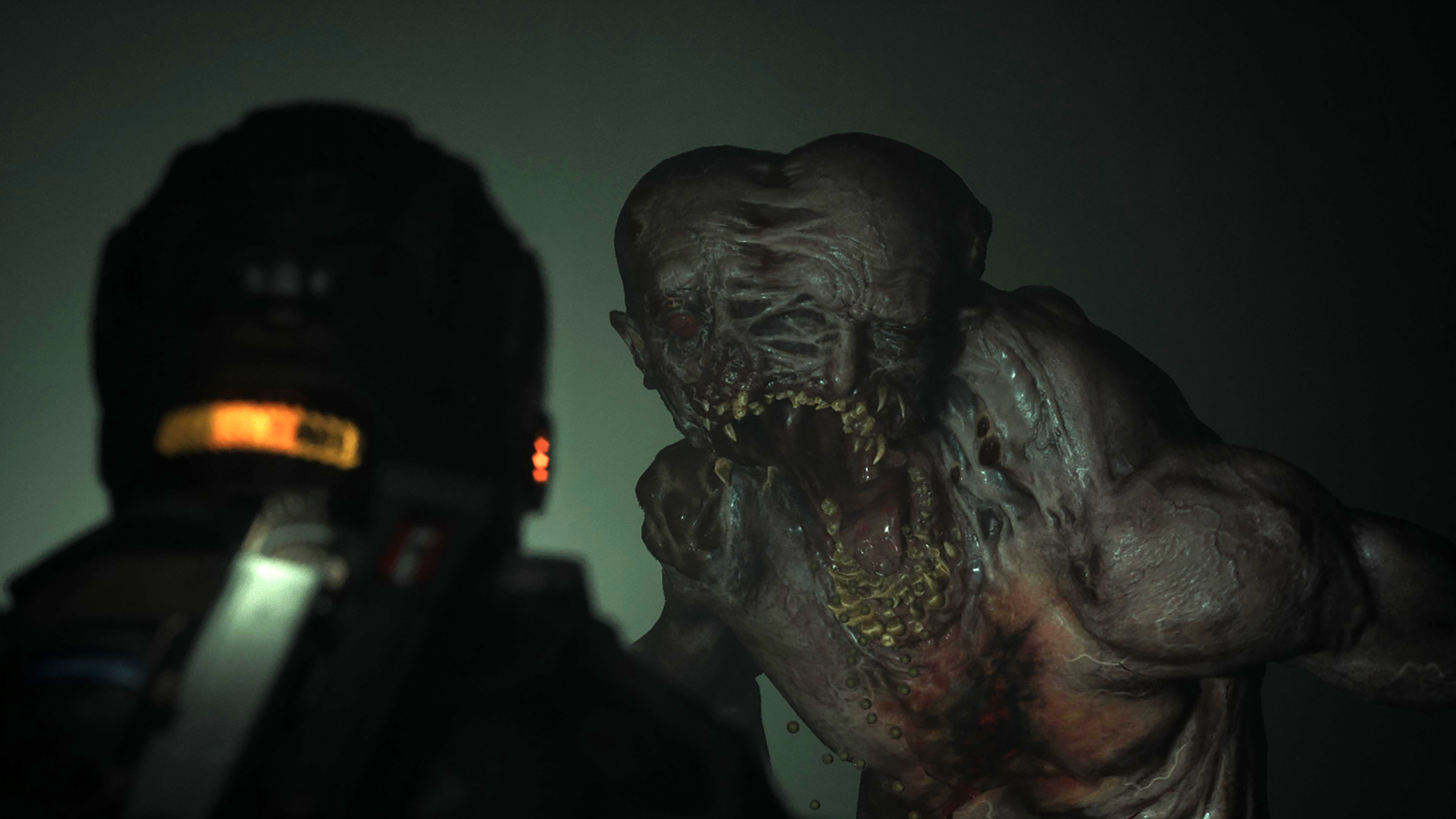GamesRadar+ Verdict
A fantastic looking game that builds a great sci-fi world only to trash it with an unenjoyable combat challenge.
Pros
- +
Looks incredible
- +
Great sci-fi world building
Cons
- -
Horrible combat
Why you can trust GamesRadar+
I don't think I've ever played anything that fought my attempts to love it as much as The Callisto Protocol. There's an impressive game here: a gorgeous looking sci-fi story of alien outbreaks in oppressive space prisons, channeling everything from Aliens to The Expanse, with elements of John Carpenter's The Thing scattered around like little grisly sprinkles. But while the story's fine, and it looks incredible, The Callisto Protocol is constantly derailed by an unforgiving combat system that feels badly designed for the vast majority of the encounters you have to deal with.
Fighting chance
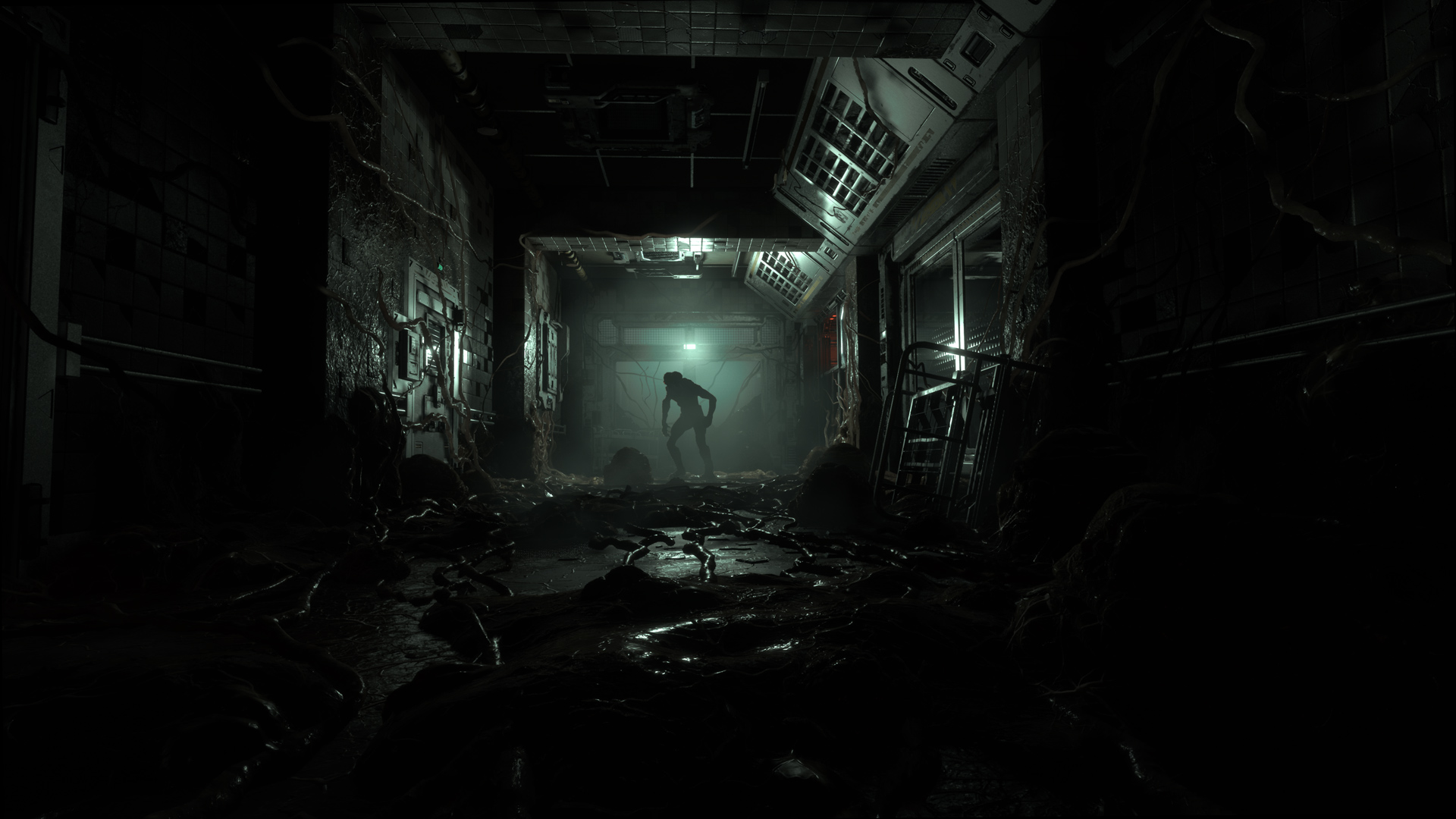
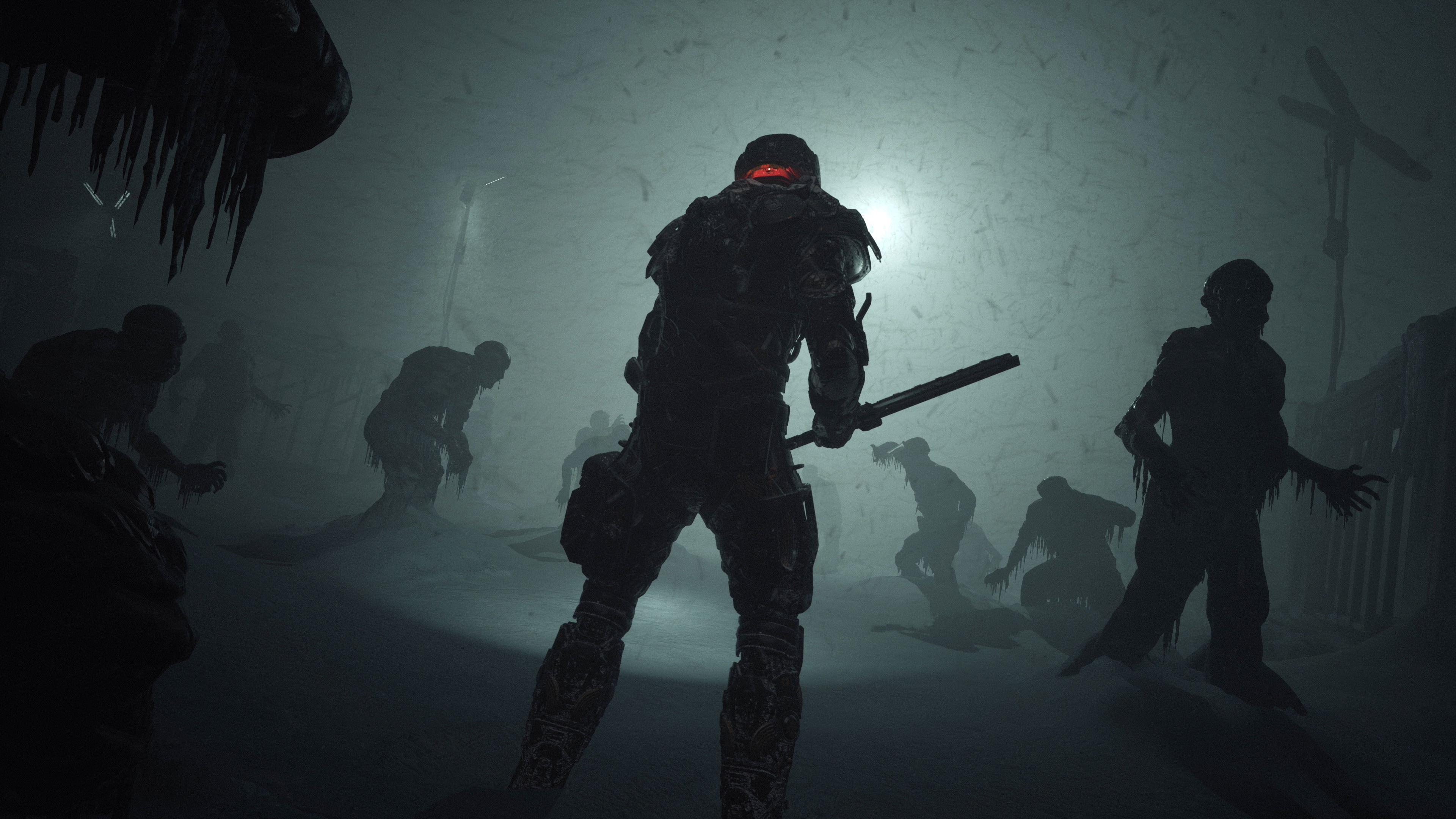
Release date: December 2, 2022
Platform(s): PS5, PS4, PC, Xbox Series X, Xbox One
Developer: Striking Distance Studios
Publisher: Krafton
Let's focus on the positives first. For starters, The Callisto Protocol is a fantastic looking game. Developer Striking Distance Studios has done an amazing job at creating something this polished and visually strong. It's full of levels and environments that I actively enjoyed exploring and finding things to look at – the level of detail, texture, and ambience to everything is incredibly well done, from grimy metal to haze in the air, and it's never less than a beautiful thing to see.
There are some great tonal shifts in terms of lighting, space, and atmosphere as well that add some really nice vibes – areas awash in blood red light (because of all the blood on the lights); a section in an oxygen processing forest that's tense as all hell, while the trees around you rustle and chitter. Sound design overall is excellent, with the station clanging, creaking, and groaning like it's alive. When monsters are moving through air vents you can actually follow their position from the audio, and know where they're going to pop out. It's a weirdly cool little detail, as well as a useful one.
The story and characters are decent too. It's nothing groundbreaking, but good enough for a solid sci-fi adventure – you're a cargo pilot who crash lands on Callisto, one of Jupiter's moons, along with the terrorist that sabotaged your ship. Space zombies happen and... go! Like Dead Space, which was co-created by Striking Distance Studios founder Glen Schofield, The Callisto Protocol is focused on survival and problem solving over anything more noble, like saving the galaxy – get out of prison, find a ship to escape in, reach it, and so on. The alien issue is very much on a list of things to deal with along the way, giving everything a pleasingly grounded feel. No one's trying to be a hero, just survive.
The Callisto Protocol has a classic survival horror feel in that sense. You're constantly trying to manage your inventory; weighing up every bit of ammo and health as to what you can afford to leave and take. There is a more action focus over extended tension building overall. It does have its moments, with some nice spooky touches and a few surprises here and there, but it's very much in the LOUD NOISES wheelhouse of scary gaming overall. There's little slow burn or build, just gaps in between the shouting and things grabbing you.
Crushing blows
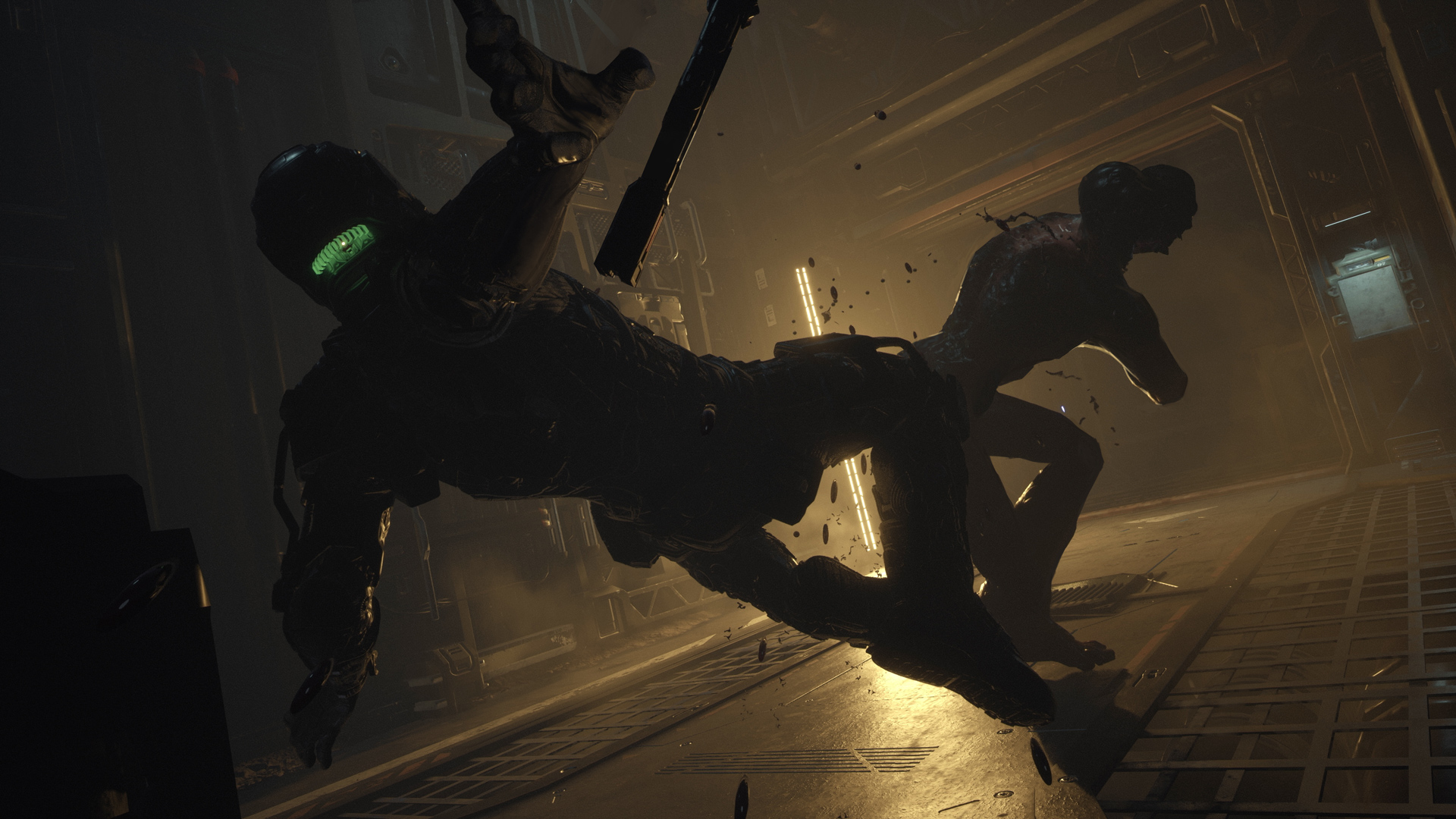
On the basis of what I've mentioned so far, I really wanted to like The Callisto Protocol more. But the constant, crushing forgivingness of the fighting makes it an ordeal. When I played the preview back in October I liked the heavy weight and brutality of the combat, assuming the difficulty came from being dropped in cold, part way into the action. Having now finished it on default difficulty I now know it's because the fighting system fundamentally doesn't work with any more than a single enemy. Even one on one, The Callisto Protocol is prone to absolutely merciless battles that can visit insta-death on you seemingly at will.
The way the combat works should be brilliant – you can hold left and right on the left stick to dodge incoming attacks. There's no timing window, you just have to be holding a direction and you'll duck an incoming swipe. Against single enemies it feels great as you duck and dive, dancing around claws and returning blows with a bone-crushing stun baton. The problems, however, are manyfold once multiple enemies come on the scene. Character movement is too slow, as is your ability to look around in a fight, meaning it's hard to make any space between you and danger, or track any threats you're not directly engaged with. So while you can weave between incoming attacks, you're basically standing in the same place, unable to access anything outside of your field of view and ripe for an off-screen sucker punch.
It means death just comes again, and again, and again. The first time you see a death animation it's a fun gory consolation prize. The 12th, 15th time it comes up in a row it's wearing. You can't skip them either, so buckle up for intimately memorizing your character's eyes being gouged out in precise detail. By far the one main tactic I found that worked is to shoot out the legs and then whack things as they crawl across the floor. But that only cuts it if you can get them before they get close.
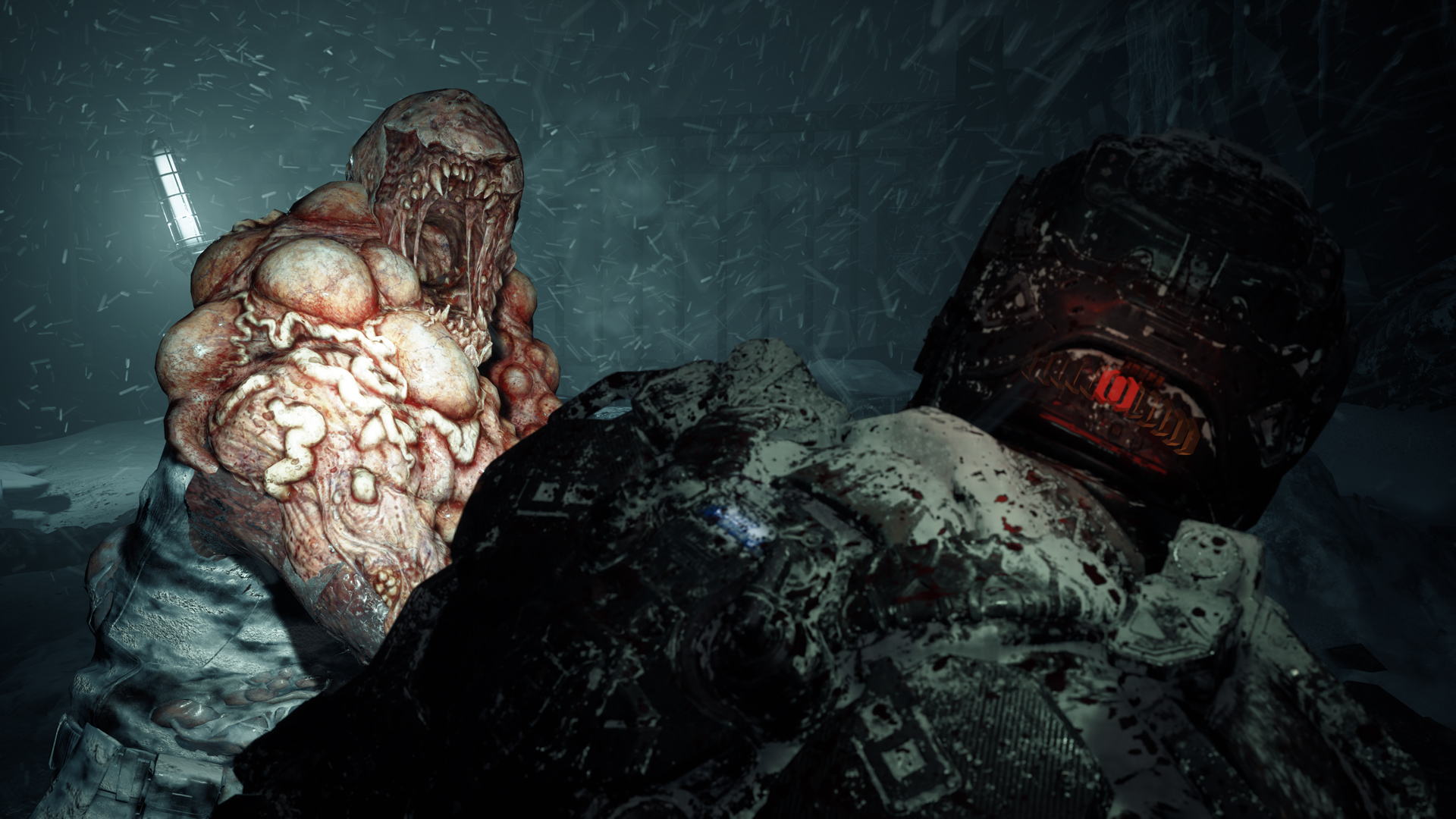
"There's so much to like in The Callisto Protocol, but the combat pacing just sucks the life out of the game"
For almost the entire game, I felt like I had either lucked or cheesed my way through nearly every encounter. I carried an explosive gas canister carefully across an entire level so that I could use it to kill the four enemies that charged me in a small room. I memorized the spawn positions of 16 monsters that appeared during a tram ride so I could whack-a-mole them the second they appeared. Where I couldn't find a trick or exploit, I just replayed bits over and over again. Groundhog Daying encounters to the point where I knew the entire scenario, looping it until all the pieces somehow fell in my favor.
Some of the worst offenders for this have elements that clearly don't work and simply highlight the shortcomings. Like a mini boss that only has insta-kill attacks: on its own it's tough, as you dodge forever, lacking the speed or space to get any safe distance to breath. The second phase, however, adds a second smaller enemy that might be easy to kill but you have to find them first. That means either taking your eye off the main enemy, at which point he kills you, or staying focused on the big threat only to get slapped by the additional enemy and insta-killed by the boss while stunned.
Overall, I'm more disappointed than anything else. There's so much to like in The Callisto Protocol, but the combat pacing just sucks the life out of it as you grind through basic encounters repeatedly, praying for the break that will let you continue. By the latter half of the game I'd pretty much switched off during most of the fighting – robotically enduring try, die, repeat loops until it was over and then switching back on for exploration, cutscenes, and all the rest.
I'd honestly recommend playing The Callisto Protocol on 'easy'. Once I'd finished the game on default difficulty I restarted it on the lower setting and it's so much more enjoyable. There's still some challenge, but it's a much more manageable, and far less crushing journey. There's obviously a whole discourse here to be had on difficulty but I've reviewed the game as presented by the developers, aware that many will resist changing the challenge for one reason or another. There's a great sci-fi game here but one marred by its combat system. Which seems such a shame given the world Striking Distance has built, and the quality of The Callisto Protocol overall. It's a hard thing to love as a result, but even after all the frustration I'd still like to see a sequel in the future.
The Callisto Protocol was reviewed on PS5, with a code provided by the publisher.
More info
| Genre | Survival Horror |

I'm GamesRadar's Managing Editor for guides, which means I run GamesRadar's guides and tips content. I also write reviews, previews and features, largely about horror, action adventure, FPS and open world games. I previously worked on Kotaku, and the Official PlayStation Magazine and website.
